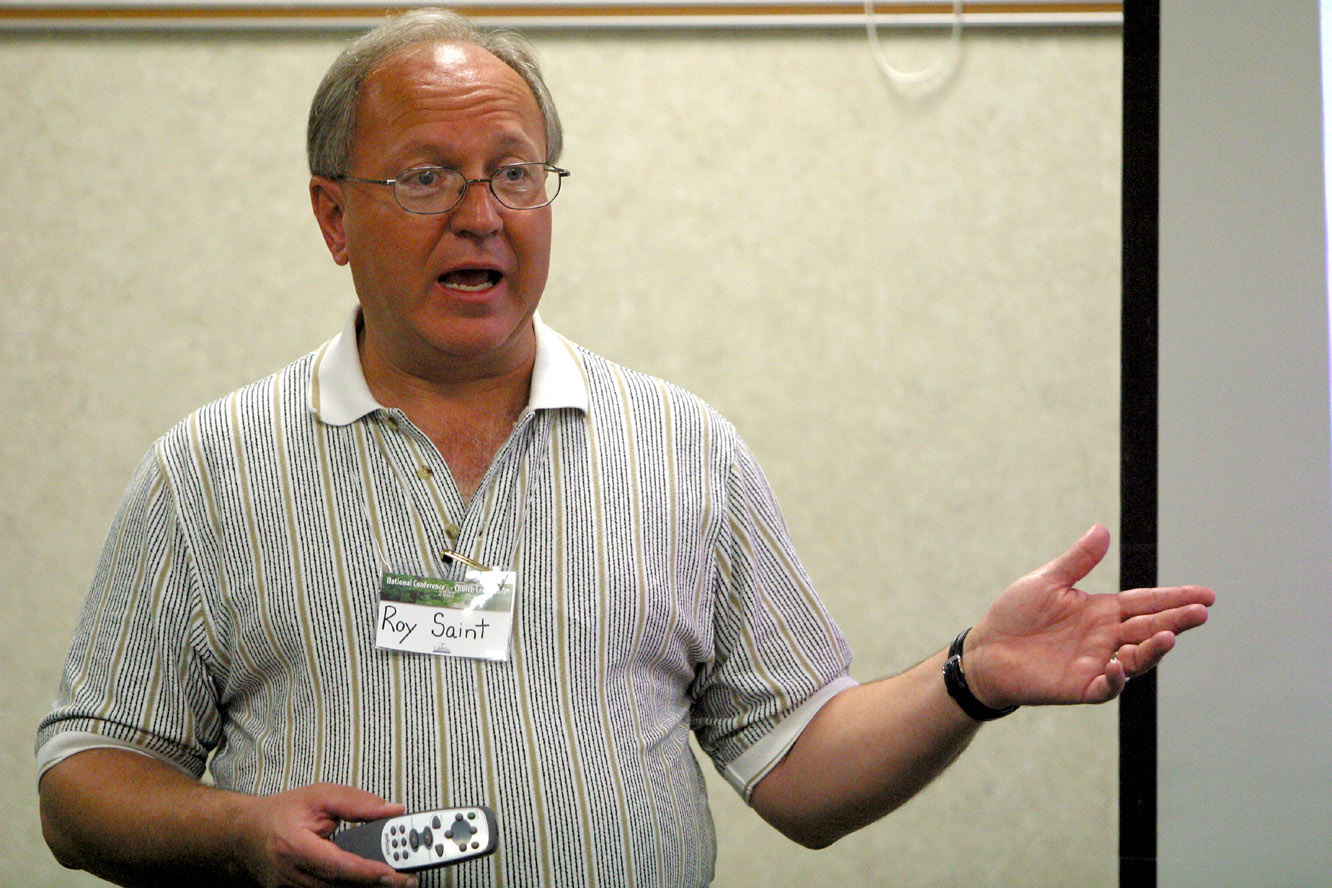
RIDGECREST, N.C. (BP)–Deacons should serve as agents for settling conflict in the church, not jump in the middle of it, a Florida Baptist Convention leader said.
“You have to help the church regain its sense of direction and purpose, and you can’t be a part of the conflict if you are mediating it,” said Roy Saint, associate director of the Florida convention’s pastor staff leadership department.
Saint led a weeklong workshop for deacons during the National Conference for Church Leadership, June 24-28, at LifeWay Ridgecrest Conference Center in North Carolina.
Deacons and all church members should realize that God is bigger than any single conflict, Saint said.
“The work of God will go on with or without our help,” he said.
Still, a church in harmony is more effective in evangelizing a lost world, Saint said, and today’s leaders could get some pointers from what those in the early church did to resolve conflict.
“First, they listened to their people. In any conflict situation, the key is to listen.”
Those who listen well might learn the conflict goes deeper than what is actually being discussed, Saint said, noting, “Sometimes, what you are hearing is not the conflict.”
The early leaders also took people and their needs seriously, Saint said. “Something might not be a crisis to you,” he said, “but it is to some people.”
Third, they built flexibility into the system. “Sometimes we are too rigid in our approaches or thoughts,” Saint said. “In a world of change, we have to make changes. Conflict can sometimes alert us that we need to make that change.”
Saint added, “There can be something positive to conflict. At least someone is concerned about something so much they become agitated about it.”
He listed three types of conflict: intrapersonal, interpersonal and substantive.
Intrapersonal conflict begins within an individual and might include feelings of frustration, confusion, unrest or guilt, Saint said.
Symptoms of intrapersonal conflict listed by Saint include:
— The same person causes conflict over and over.
— The person is encountering problems in his or her life.
— The person is going through development stages or passages in life; is experiencing stress; is physically ill or emotionally unstable.
Interpersonal conflict, Saint said, is between two or more people and can grow out of intrapersonal conflict.
“It’s not based on issues as much as it is on what one person or group thinks and feels about another. Sometimes it includes conflict that hasn’t been taken care of in the past.”
Symptoms of interpersonal conflict, he said, include:
— Withdrawal. “Those involved avoid each other.”
— Rationalization. “Those involved try to explain each other by theories and thereby explain their dislike or inability to be in accord.”
— Denial. “Those involved refuse to acknowledge conflict exists.”
— Fight behavior. “Differences erupt into personal attacks, name-calling, and such. When it gets to fight behavior, it’s gotten to full-blown trouble.”
Substantive conflict is disagreement over issues, Saint said. “This grows out of differences about goals, methods or facts and can include issues such as a new building program, renovation project, whether to move a piano or the structure of the church budget.”
In substantive conflict, Saint said, the issue continues to resurface until it is clear intrapersonal or interpersonal conflict is not the source of the problem.
Conflict in churches can start for several reasons, he said, including stress, confusion, use or misuse of power, change, diverse membership and poor communication, unmet needs and fear.
“But poor communication is the number one cause of conflict,” he said. “George Bernard Shaw said, ‘The biggest problem with communication is the assumption it has taken place.'”
Deacons must learn to confront conflict in healthy ways, Saint said, noting:
— They can approach every situation with love and compassion, using prayer as a primary tool.
— They can help the church regain a sense of direction and hope.
— They can help the church reaffirm its ministry priorities.
“Good leadership skills can help deacons properly manage conflict,” Saint said. “Be proactive rather than reactive. Be transformational, not transactional. And remember, it’s a journey, not a destination.”
The National Conference for Church Leadership Church is sponsored by LifeWay Christian Resources of the Southern Baptist Convention. Church leaders interested in attending an NCCL conference next year can e-mail [email protected] for more information.
–30–
(BP) photo posted in the BP Photo Library at http://www.bpnews.net. Photo title: COUNSEL TO DEACONS.

















